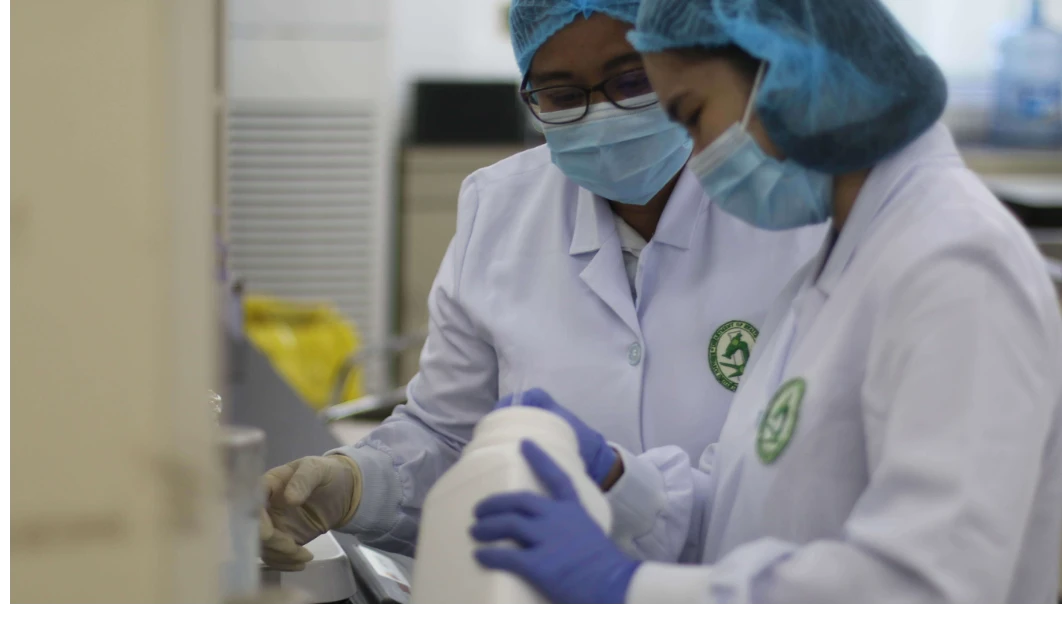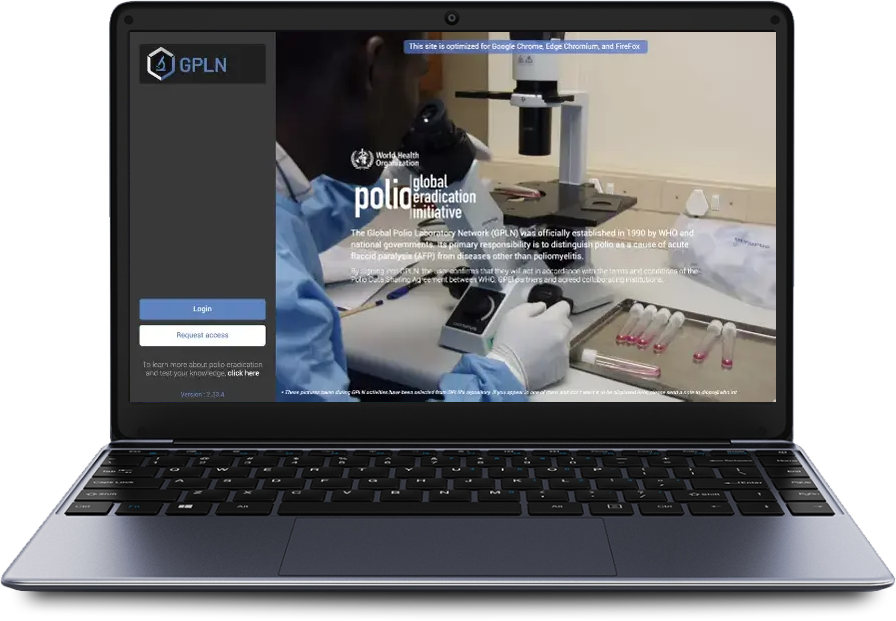Objectives
- Supports laboratories quality control processes electronically.
- Coordinate Global, Regional, National and Sub-national laboratories activities.
- Centralize and maintain laboratory core information.
Description
The web based Global Polio Laboratory Network Management System (GPLNMS) is a modernized, centralized platform to support the quality control process of all Polio laboratories in the world. All GPLN laboratories have secure access to the system and are expected to maintain their core information up to date (staff, equipment, publications, stocks, trainings etc.).
On a yearly basis, each laboratory submits electronically a comprehensive performance accreditation report based on a standardized checklist and scoring system. This report includes sections for each of their capacities; virus isolation, ITD testing, environmental surveillance, and sequencing. Process indicators are used to assess the timeliness and availability of results for program action. The accreditation process optionally requires an onsite audit of work practices by WHO-assigned external reviewers, which results are integrated in the report.
The accreditation report also includes the results of most recent proficiency testing typically carried out within a year before the accreditation due date.
The accreditation report is reviewed by the WHO Regional and Global laboratory coordinators to determine whether laboratories meet defined performance criteria.
Finally, the system is also used to disseminate the GPLN essential reference documents such as guidelines or protocols.
306
364
52

Geographic deployment
WorldWide
Context
Effective polio surveillance requires virologists, epidemiologists, clinicians, and national immunization programme staff, backed up by a global network of laboratories.
The Global Polio Laboratory Network (GPLN) was established in 1990 by WHO and national governments. Its primary responsibility is to distinguish poliovirus as a cause of acute flaccid paralysis (AFP) from AFP caused by other diseases.
The GPLN currently consists of 146 WHO accredited polio laboratories, in 92 countries across the six WHO regions of the world.
Since the beginning of the program, a core activity of the GPLN has been to test stool specimens from patients with acute flaccid paralysis (AFP) for the presence of polioviruses. More recently, sewage specimens are also tested in several countries as a supplement to AFP surveillance.
National, regional, and global specialized polio laboratories follow WHO-recommended procedures for detecting and characterizing polioviruses from stool and sewage samples collected from AFP cases and the environment, respectively.
The accuracy and quality of testing at GPLN member laboratories is monitored through an annual accreditation programme that ensures they can accurately and reliably detect and characterize the poliovirus.
Before the introduction of the GPLN Management System, laboratory quality control processes were carried out by email and exchange of scanned documents, making it tedious and time consuming.







